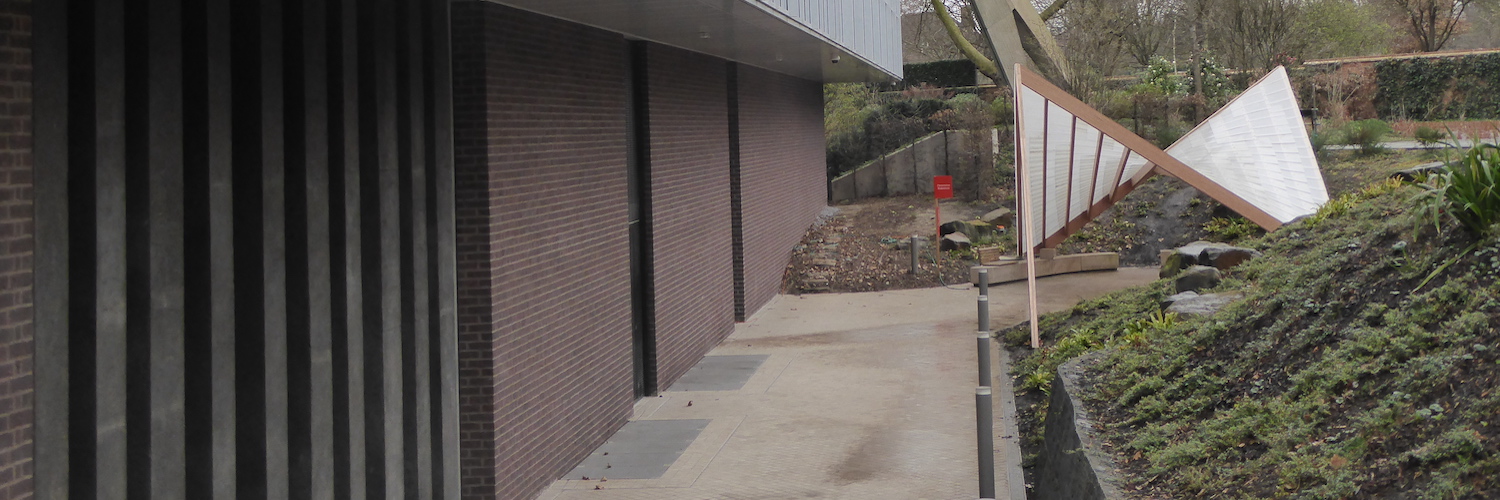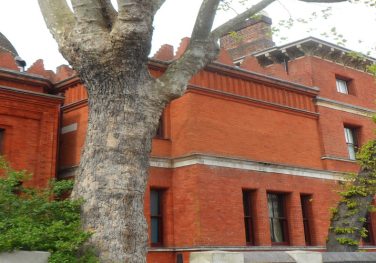The Design Museum
© Doyle of London – This file is licensed under the Creative Commons Attribution-Share Alike 4.0 International license
A co-designed community garden
In March 2022, the Design Museum started to explore how an underused, inaccessible open space next to their building could be reimagined. Working with Design Age Institute, they were especially interested in involving the over 50s, a group that was underrepresented in the museum’s audience. As part of their Growing Together programme, over 100 local people including older adults, have co-designed an accessible, age-friendly learning space.
We are thrilled to support Growing Together with a grant of £24,885. Growing Together is committed to giving everyone access to green spaces and creative learning opportunities. Our grant will allow the Design Museum to set up an intergenerational volunteer group, made up of local students and adults aged 50 or over, and deliver a wide range of activities for everyone in the community to enjoy.
- The Design Museum has welcomed 2.3m visitors since 2016.
- The project’s citizen science activity will enable participants to record seasonal activity, like flowering and animal migration, to add value to national research programmes and policy.
- According to the Director of Public Health in 2018, 10% of people over 65 years in the UK were lonely.

© Ardfern – This file is licensed under the Creative Commons Attribution-Share Alike 4.0 International license.
Growing and learning together
Being in nature is good for us. It can reduce stress, improve sleep and increase happiness. Taking part in activities in the garden will help reduce loneliness and build healthier communities. The museum aims to host 50 weekly sessions in the garden by October 2023. These will include gardening, citizen science projects like monitoring wildlife, and wellbeing activities including making natural remedies and meditation. People of all ages will be welcome at three open days exploring nature and design and highlighting design’s role in addressing the environmental crisis.
The garden will be an outdoor classroom, available to local schools and community organisations, including those supporting neurodivergent adults, and new migrant and refugee communities. Digital technology will give information about the garden and activities in a variety of languages used by the garden volunteers.
“The Design Museum is one of the youngest museums in London and has made a place for itself very quickly. We first supported the Design Museum in 2020 and are delighted to help them deliver a garden for the whole community. This project will have an impact in several areas that matter to us – creating access to opportunities, improving health and wellbeing, and investing in our communities and environment.”
More Success Stories

Horniman Public Museum and Public Park Trust

Natural History Museum

